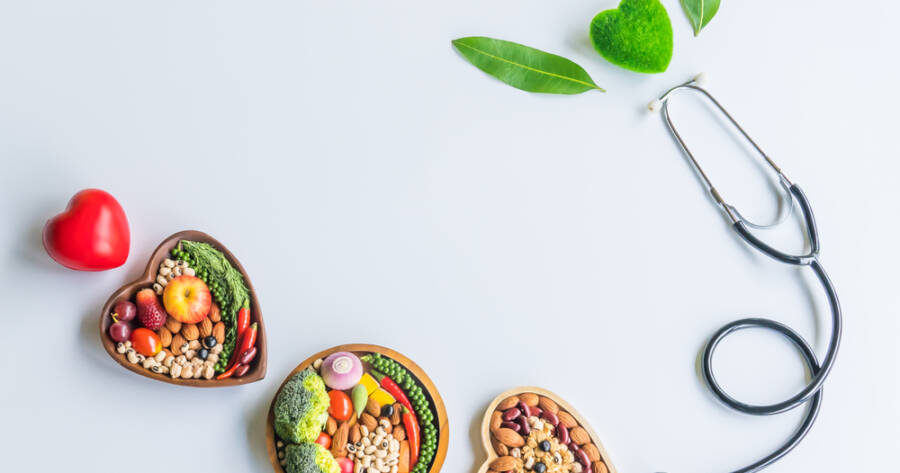Your heart works hard every single day, and the foods you eat can either support or strain its function. By choosing ingredients that lower cholesterol, reduce inflammation, and support healthy blood pressure, you give your heart the nutrients it needs to thrive. The good news? Heart-healthy eating doesn’t have to be bland or complicated. With a few simple swaps and additions, you can nourish your cardiovascular system and enjoy every bite along the way.
Oats and Whole Grains for Lower Cholesterol
Whole grains like oats, quinoa, brown rice, and barley are rich in fiber, particularly soluble fiber, which helps reduce LDL (“bad”) cholesterol levels. Oats contain a type of soluble fiber called beta-glucan that forms a gel-like substance in your gut, helping to trap and remove cholesterol from the body before it enters your bloodstream.
Swapping out refined grains for whole ones is a simple but impactful heart-healthy habit. Choose oatmeal for breakfast, use quinoa as a base for grain bowls, or opt for whole-grain bread and pasta. These fiber-rich foods also help keep blood sugar stable and support digestion, making them an all-around smart choice for cardiovascular and overall wellness.
Leafy Greens and Colorful Veggies for Antioxidant Support
Leafy greens like spinach, kale, collard greens, and arugula are packed with vitamins, minerals, and antioxidants that help reduce inflammation and protect blood vessels. They’re especially rich in vitamin K and nitrates, which support healthy circulation and can help lower blood pressure.
Adding a variety of colorful vegetables, such as bell peppers, carrots, beets, and broccoli, provides even more heart-protective nutrients. The more color on your plate, the more diverse the antioxidants working in your favor. Aim for at least 2–3 servings of vegetables per day by tossing greens into smoothies, sautéing them into dishes, or building hearty salads full of texture and flavor.
Fatty Fish for Omega-3 Fatty Acids
Fatty fish like salmon, mackerel, sardines, and trout are rich in omega-3 fatty acids, essential fats that reduce inflammation, lower triglyceride levels, and support the health of your arteries. Omega-3s also help stabilize heart rhythms and reduce the risk of heart attack and stroke.
Aim to include fatty fish in your meals at least twice a week. Try baking salmon with herbs, adding canned tuna to salads, or making a quick fish taco with grilled mackerel. If you’re not a seafood fan, consider adding flaxseeds, chia seeds, or walnuts to your diet for plant-based omega-3s. These healthy fats are a powerful and delicious way to care for your heart.
Nuts, Seeds, and Healthy Oils for Good Fats
Not all fats are bad. In fact, healthy fats are essential for heart function. Nuts like almonds, walnuts, and pistachios, along with seeds like flaxseeds and sunflower seeds, offer heart-protective fats, fiber, and plant sterols that help lower cholesterol. They’re also anti-inflammatory, supporting healthy blood vessels.
Drizzle extra-virgin olive oil over vegetables or use it as a base for homemade dressings. Avocados are another excellent source of monounsaturated fat and can be added to salads, sandwiches, or smoothies. Swapping out saturated fats (like butter) for heart-healthy oils is one of the easiest ways to support your cardiovascular system without sacrificing flavor.
Berries and Citrus Fruits for Natural Heart Protection
Berries like strawberries, blueberries, and raspberries are loaded with antioxidants and polyphenols that help reduce blood pressure and improve cholesterol levels. Their natural sweetness makes them a heart-friendly alternative to processed snacks and desserts. These fruits also help improve the function of the cells lining your blood vessels, which is key for healthy circulation.
Citrus fruits like oranges, grapefruits, and lemons are high in vitamin C and flavonoids, which are known to support heart health and reduce inflammation. Enjoy berries on your morning oatmeal or blend them into smoothies, and snack on citrus segments or add a splash of lemon to water or salads. These vibrant fruits make heart-healthy eating refreshing and fun.
Legumes and Beans for Protein and Fiber
Beans, lentils, chickpeas, and other legumes are incredibly heart-healthy foods. They’re high in fiber, plant-based protein, and minerals like magnesium and potassium, all of which support healthy blood pressure and cholesterol levels. Their fiber content also helps reduce LDL cholesterol and keeps you feeling full and satisfied.
Adding legumes to your meals is easy and budget-friendly. Use black beans in tacos, add lentils to soups or stews, or try hummus as a dip or sandwich spread. Swapping meat for plant-based proteins a few times a week can lower your intake of saturated fat and give your heart a much-needed break—without skimping on flavor or nutrition.
Love Your Heart Through What You Eat
Caring for your heart starts with what’s on your plate. By choosing foods rich in fiber, healthy fats, antioxidants, and essential nutrients, you’re giving your cardiovascular system the daily support it needs to stay strong. You don’t need a complete diet overhaul, just small, consistent choices that add up over time. Fill your meals with color, variety, and whole foods, and your heart will thank you with every beat. It’s never too late (or too early!) to eat with your heart in mind.

